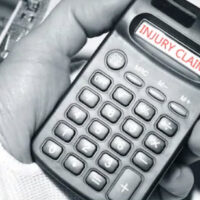The Judge And The Jury: Who Does What?

In your personal injury case, you may hear your injury lawyer talk both about a judge and a jury. We’re taught that we have a right to a jury, and that a jury of our peers will make decisions about our case. Yet, in trial, there is still a judge, and as your case is being litigated, you will hear your attorney talk about the judge deciding this or that. So what does a judge get to decide, and what does a jury get to decide?
What a Judge Does Before Trial
Let’s preface this explanation by saying that we’re discussing a personal injury trial, where juries are common. In cases where there is no jury, the judge makes all the decisions at the trial court level.
Assuming we’re talking about an injury trial, the jury does not come into play until the actual trial. But before trial, there are months—sometimes, years—when the case is being litigated by both parties. During litigation, the parties learn about each other’s cases, get information from each side, and conduct investigations of each other’s evidence.
Disputes often arise during the course of the litigation process. The judge will resolve these disputes that arise between the parties. These rulings can be crucial to a case—a judge who excludes a party from using a witness, or finds crucial evidence to be unusable by a side, can greatly impact a party’s chances of winning at trial.
The Judge at Trial
At trial, the judge will make rulings that have to do strictly with the law. The judge is the “gatekeeper” of the law, ensuring that the jury hears all the facts of the case, but does so within the confines of what the law allows them to hear.
Examples of the kinds of things the judge may rule on at trial include:
- What instructions will the jury be given?
- Will experts be able to testify, and is their testimony admissible?
- Is there any evidence that the jury shouldn’t be allowed to hear or consider?
- Is a party making an error, such as making an argument or a point that they are not allowed to make?
The Jury at Trial
The jury is the ultimate finder of fact. Any fact that is disputed will be determined by the jury. When two witnesses have differing opinions or statements, the jury will decide which one is believable. The jury will determine how much weight or consideration to give to evidence. Evidence that you may see as vital or crucial, the jury may not consider to be very important at all.
The jury of course makes the final decisions in your case, such as whether the Defendant is negligent, whether you contributed to your injuries, or how injured you are. Although there are some limited exceptions, as a general rule, the judge does not have the ability to just change the jury’s decision once it is made.
The Tampa personal injury attorneys at Barbas, Nuñez, Sanders, Butler & Hovsepian can help you recover damages for injuries sustained in any kind of accident. Schedule a consultation today.
